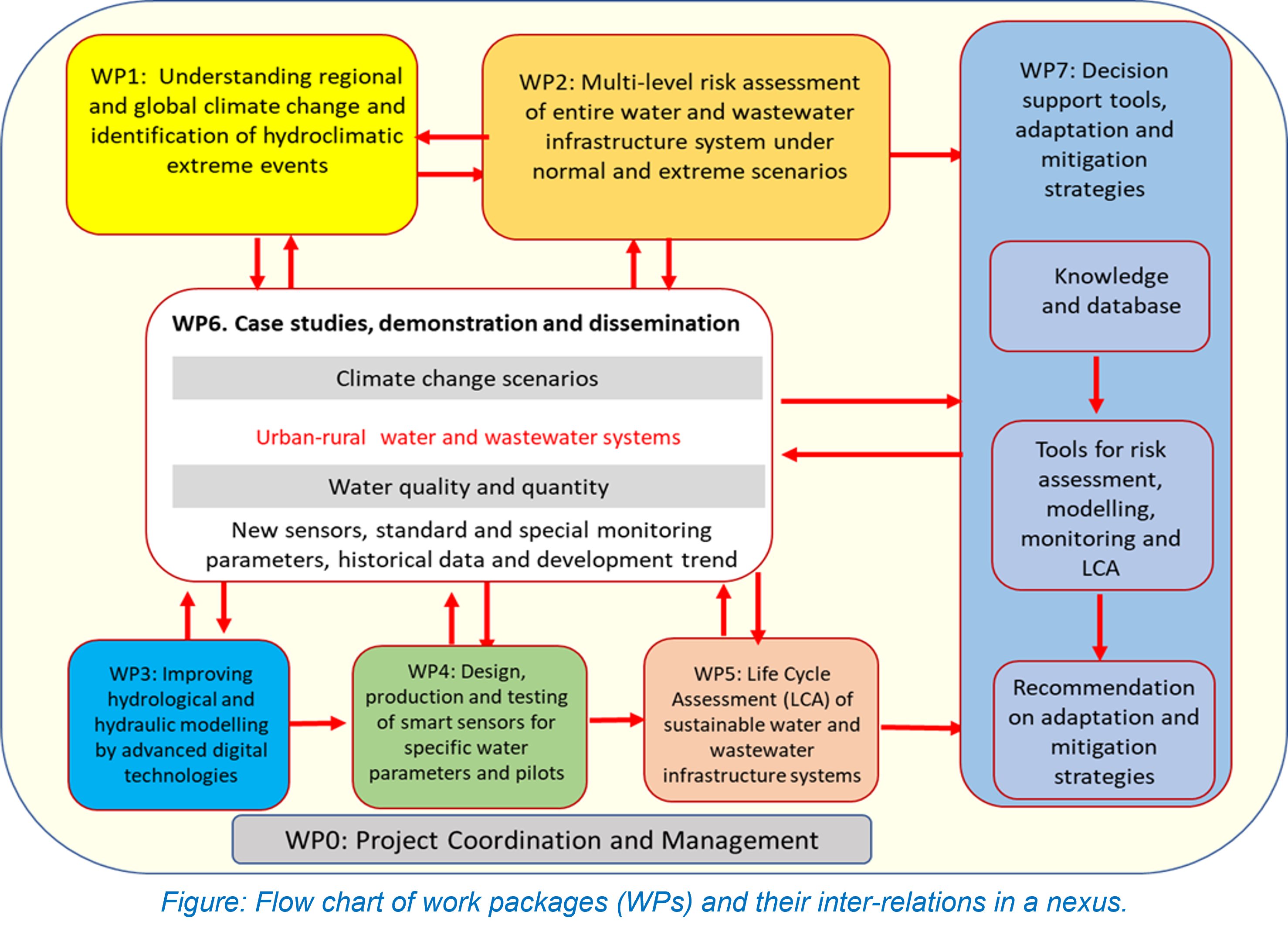The SmartWater4Future consortium has six partners from four countries. It is coordinated by Professor Ronny Berndtsson at Lund University (ULUND), Sweden, supported by Foundation CSDI WaterTech, Norway, UCEV and Konya Technical University (KTUN), Turkey, and ETH Zurich, Switzerland, and the Arctic University of Norway (UiT). The project consortium includes four university partners: ULUND-SE, UiT-NO, ETH-CH, and KTUN-TK, one non-profit organization CSDI-NO with R&D as its main activities and UCEV-TK with SME business activities to design, produce, and apply smart sensors for data acquisition on water quantity and quality parameters under extreme hydroclimatic conditions. The collaboration of the consortium partners ensures to complete project activities and fulfil the project objectives. The main project activities are organized in eight work packages (WPs) as illustrated in Figure 2, where WP0 is project coordination and management continuously carried out during the project period (led by ULUND) with regular management and monitoring work; regular project meetings and follow-up where all PIs and the coordinator will jointly do periodical evaluations of project progress. Some of the project meetings and other events will be organized digitally to reduce the carbon footprint. WP0 has thus an overarching function over all other WPs.
WP1. Understanding regional (Nordic, Arctic, and high-altitude) and global climate change and definition of hydroclimatic extreme events.
WP2. Multi-level risk assessment of the entire water and wastewater infrastructure system from inlets to recipients under HC extreme scenarios.
WP3. Improving hydrological and hydraulic modelling by advanced digital technologies.
WP4. Design, production and installation of sensors and monitoring the characteristics of water under hydroclimate extremes and pilot testing.
WP5. Life Cycle Assessment (LCA) of sustainable water infrastructure systems.
WP6. Case studies, demonstration and dissemination.
WP7. Develop a Machine Learning (ML)-based digital decision support tools (DSTs) and draw recommendations.
